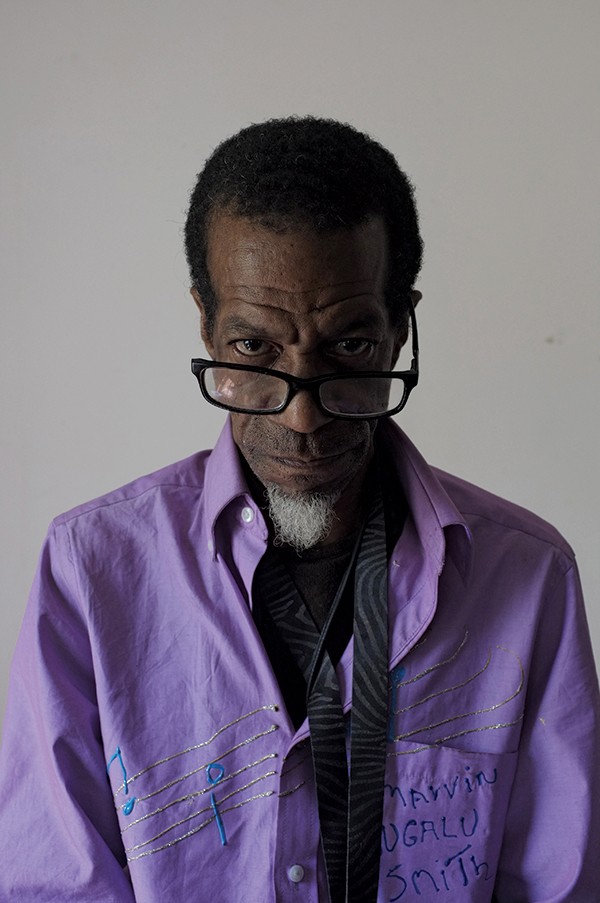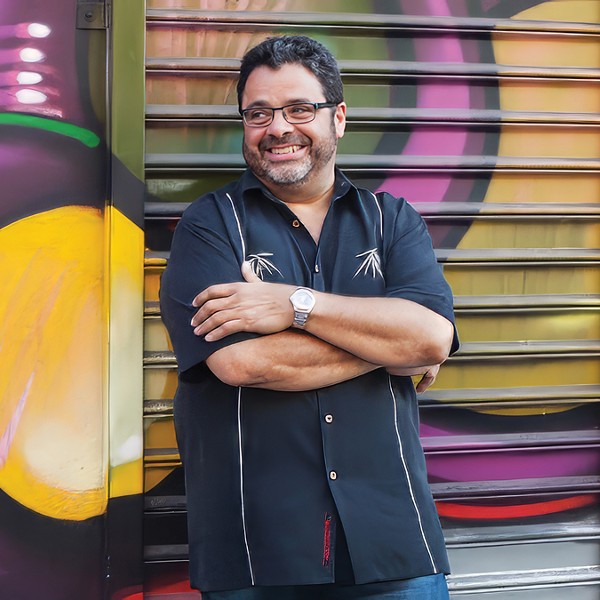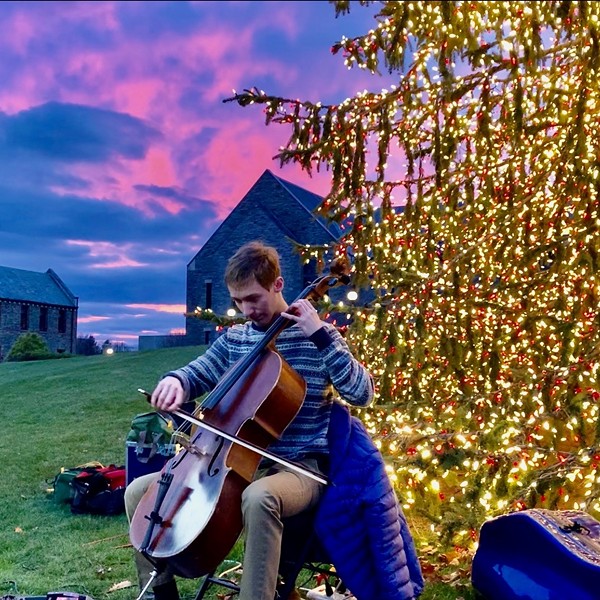There is little that will prepare you for Marvin "Bugalu" Smith.
"Oh yeah, I'm the man," proclaims the wiry, raspy-voiced drummer. "When I come onto the stage the whole place changes, and everybody knows it—I'm the man who swings the band!"
And swinging the band—his own as well as those of Sun Ra, Chet Baker, Archie Shepp, Charles Mingus, and many others—is exactly what the animated, colorfully eccentric Smith has been doing for the majority of his 63 years. "Everybody loves playing with me, but at the same time it scares some people," he says. "They say, 'Gee, the room was regular, but then Bugalu come in and it just filled up with all this energy.' How do I explain that? I don't know. Nobody knows. That's just me, man."
"[Smith] is one of the greatest drummers in jazz, and in the '80s he played with some of the biggest names," says saxophonist Rob Scheps, a longtime collaborator. "He's a master, a hidden treasure who should be much, much better known. But he's just tucked away in Poughkeepsie. So the question is: What happened?"
Blue Stride
From Marvin "Bugalu" Smith's album Majestic.
We'll get to that. But first: Smith (who shouldn't be confused with Marvin "Smitty" Smith, another jazz drummer) made his initial earthly entrance in 1948 in Englewood, New Jersey. His older brother and first influence was Earl "Buster" Smith, a drummer best known for his years with saxophonist and composer Eric Dolphy. "Buster was 18 years older than me, I remember standing underneath his hi-hat and watching his foot work the pedal," says the younger Smith, who himself sports a wispy, graying, and very Dolphy-esque soul patch. "I started playing when I was two. Buster listened to jazz every day, so the first music I heard was big band and bebop music." Despite his brother's tutelage, however, it became clear early on that the younger drummer would be forced by nature to make his own way.
"I have a lot of good qualities, but I was born dyslexic," Smith explains. "So a lot of stuff looks completely backwards to me. Being dyslexic...you don't ever get rid of it, but you eventually get used to it. It affected me in other ways. Like, I would go down in the basement to practice in the wintertime and I would come out and it would be all sunny and warm outside. And I'd ask my brother, 'Hey, what happened? When I started practicing down there, there was all this snow everywhere and it was really cold outside, and now I come out and it's all warm and nice?' And he'd just look at me and say, 'Man, what's wrong with you? You're crazy—you been in the house for four months!' Four months! Nobody else does it like that, they'd be burnt out. But I'd be down there playing for days, man. And I just never looked at whatever else was going on. I wasn't bad in school, I tried, but I just couldn't get it. So I put all my eggs in the basket of the drums."
Englewood has historically been one of Manhattan's most active satellite communities when it comes to jazz, R&B, and other strains of black American music. When he was 16, Smith got a gig at the local Town Sound Recording studio, cited as the first black-operated studio in the US not connected with a parent record label. "I told myself I was gonna get a job in that studio somehow," recalls the percussionist. "Didn't matter if I had to be the hamburger man, switchboard operator, whatever, as long as I could get in there. Fortunately, the owner found out I played the drums and he started using me on sessions." By day, at $25 a shot ("a lot of money to a 16-year-old back then"), Smith played on recordings by such clients as James Brown, Sam and Dave, and Lola Falana (who he would later perform with at the Sands Casino in Las Vegas), and by night played in funk band the Knights of Soul.
In 1969 his life and career took a dramatic turn when his neighbor, trombonist Tyree Glenn, got him into the backing band of singer Rocky Roberts. Though born in America, Roberts was popular in Italy, where his records sold in the millions (Roberts's hit theme for the 1966 spaghetti western Django was reused by Quentin Tarantino for 2012's Django Unchained). Thus, it was to Italy that the wide-eyed young drummer went, and it was there that he acquired his quirky nickname. "I was about to play this gig with Rocky at this huge theater and I peeked out through the curtains and there was maybe 1,500 or 2,000 people out there!" he says. "I saw all these beautiful Italian women in the audience. I didn't speak the language then [Smith is fluent now], so I just said 'Man, look at all that fine bugalu out there!' Tyree laughed and said, 'Hey, man, that's a good name for you.'" Smith would remain in Europe for almost 25 years, performing with Roberts and visiting US jazz greats like Baker, Mingus, Art Farmer, and Mal Waldron.


















